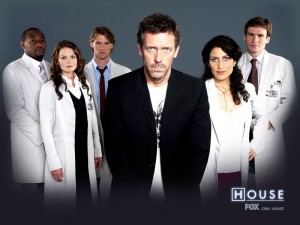We have recently been speaking about access to health information and the responsibility of doctors to tell patients what they believe is important and what will cause unnecessary harm to the patient.
During this conversation I have been questioning the judgment call of doctors for certain patients. For example, if a doctor is forced to treat a patient they strongly dislike – will they give more or less care to the patient? Furthermore, would they unknowingly withhold information simply because they do not like the patient. Of course, we would like to assume that all patient treatment would be exactly the same but this of course is not true. Beyond the doctors’ control, the care will shift slightly for a patient they favor over a patient they dislike.
Although a bit of a leap, I began thinking about healthcare and health information in prisons in the United States. As we stress the importance of doctors’ gauge on a patients, health, needs and information; what about patients who doctors may have prematurely judged?
As of 2012, there were 1,517, 013 prisoners in the United States. Prisoners have the right to adequate healthcare under the eighth amendment. This means that prisoners should not be subject to cruel and unusual punishment. Clearly this is not the case. Many claims have been main regarding the “deprivation of basic elements of adequate medical treatment”, “deliberate indifference” and most importantly “abuse of discretion”.
Of the current inmates approximately 800,000 suffered from a chronic condition that needs regular medical attention such as diabetes, previous heart attacks and hypertension. Furthermore the treatment rate for mental health ailments tripled for individuals after incarceration. With the Americans prison members older than 55 growing faster than the population at large, may prisons must be prepared to provide them healthcare. This will cost approximately nine times more than healthcare for younger inmates. As the prison population rises, hospitals for prisons are becoming overbooked such as in California, which currently has three hospitals. Prisons must then contract to private hospitals for inpatient care that can cost approximately $850,000 per year for one inmate.
It is a raising concern for many that healthcare costs in prisons are continually raising. As the U.S. healthcare suffers from severe budget crisis, prisoners are being moved to hospitals and additional forms of treatment. Doctors treating prisoners are often cited for ignoring patient needs or abusing the right of doctor discretion, a topic we have discussed at length.
Knowing this information, the current U.S. healthcare system and the large cost of incarceration it is crazy not to ensure that inmates get the basic care that they deserve. But is it really possible to ensure that they will be receiving ethical care? If prisoners are placed in private hospitals, will that not factor into treatment? Will they be given complete treatment, or treated like a general patient? Is it unethical to do so? How can we ensure that a doctor will be using sound discretion which treating these patients?
Sources:
Gardner, Amanda. “Many in U.S. Prisons Lack Good Healthcare.” HealthDay. Jan. 16 2009. Web
Klein, Stuart. “Prinsoners’ Rights to Physical and Mental Health Care: A Modern Expansion of the Eight Amendment’s Cruel and Unusual Punishment Clause.” Fordham Urban Law Journal. 1978. N.pg. Print
Williams, Timothy. “Number of Older Inmates Grows, Stress Prisons.” New York Times. N.pg. Jan. 26, 2012. Web.
